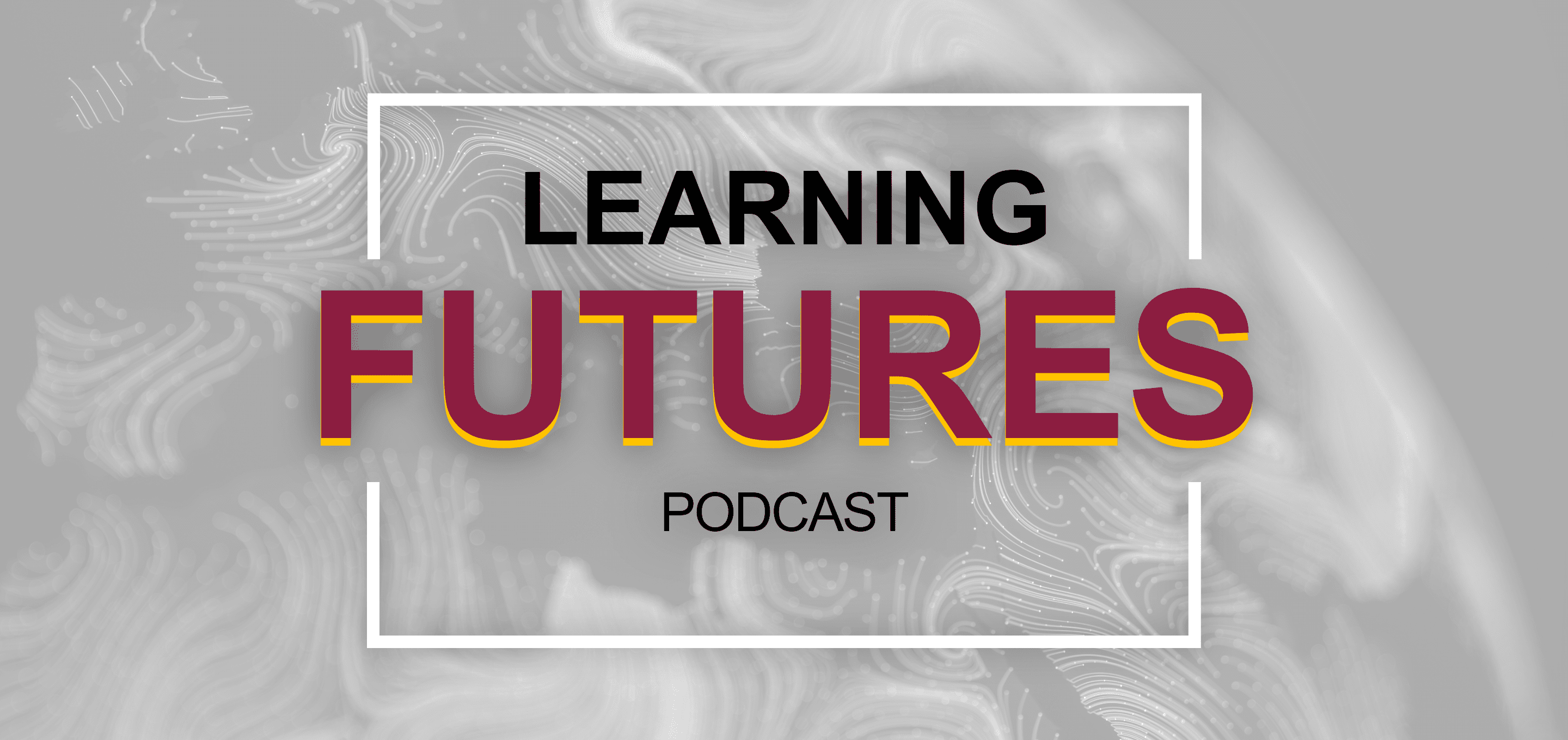“How can we design a national research and development center and amass evidence on innovations, best practices, and policies to support schools and states that want to retool or restart their high schools?” This is the question Sean Leahy of “The Learning Futures” podcast recently asked to a panel of educational leaders to discuss.
Elizabeth “Betsy” Fowler, Deputy Head of Schools at ASU Preparatory Academy and Executive Director of Special Projects, was among the panelists. She was joined by Chelsea Waite, Principal and senior researcher at the Center on Reinventing Public Education at ASU; Erin Whalen, Executive Director and School Principal of Da Vinci RISE High; and Nate McClennen, Vice President of Strategy and Innovation at Getting Smart.
Here are some ASU highlights from the podcast:
- Accelerated Change. We’re seeing massive growth and accelerations of disruptions, technological and otherwise. Changes are occurring faster and faster. The role of a K-12 school is to prepare people to be a contributing and functional member of society. Maybe the system has to change to help prioritize what’s coming next. The new “superpowers” are the ability to pivot and learn.
- Supportive, Developmental Environments. The teen years are a critical development period and schools need to prioritize providing supportive relationships. Waite said, “Yes, they’re places of learning, but you don’t learn unless you have trusting supportive relationships with peers and adults and have spaces to learn about yourself and who you are in relation to the world around you.”
- Exposure to Higher Education. Fowler shared that at ASU Prep Academy, it is their goal to have all students take at least 12 university credits while in high school. “We really want them to have a positive experience with higher education while they’re here with us and want them to believe they have that choice when they leave us—all students, no matter their background, no matter their parents’ story and what they’ve maybe been exposed to,” she said. “We see our obligation as that all learners believe they have that support.”
- Authentic Learning. Courses are not the only way to learn. Authentic learning starts as an observer. Helping out and pitching in. Building skills and being mentored. Given more complex tasks. Working on something together and skill building. Ask someone, “How do you want to learn?” Taking a course is generally not the answer received. “We don’t always get it right. We iterate. We try to figure it out. We ask what are kids feeling about the different things we’re designing with them? It’s really exciting to be doing the work in this space,” said Fowler.
- AI, Access & the Future. Panelists agree that AI will play a bigger and bigger role for every learner, and that access to an AI tool will be important for knowledge building. “How do we get the students who’ve never had access to AI, and how do we make sure our schools are equitable?” are among the questions asked. Fowler said they’ve been pondering what high school looks like with AI technology increasing in play and talked about the partnership with Sal Khan and Khan World School and the unique learning it provides.
Undoubtedly, designing the new American High School is a systems challenge. It’s not just how to design new models or how to replicate and spread models, or the policies needed to be in place. It’s all things together and a lot more.
Listen to Full Podcast

